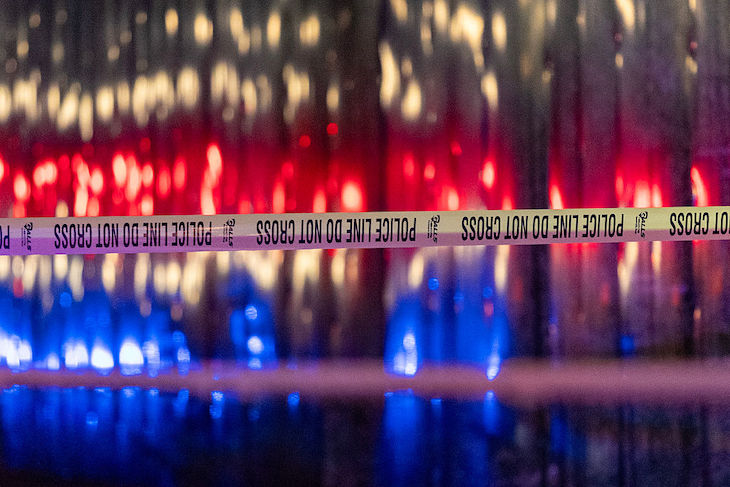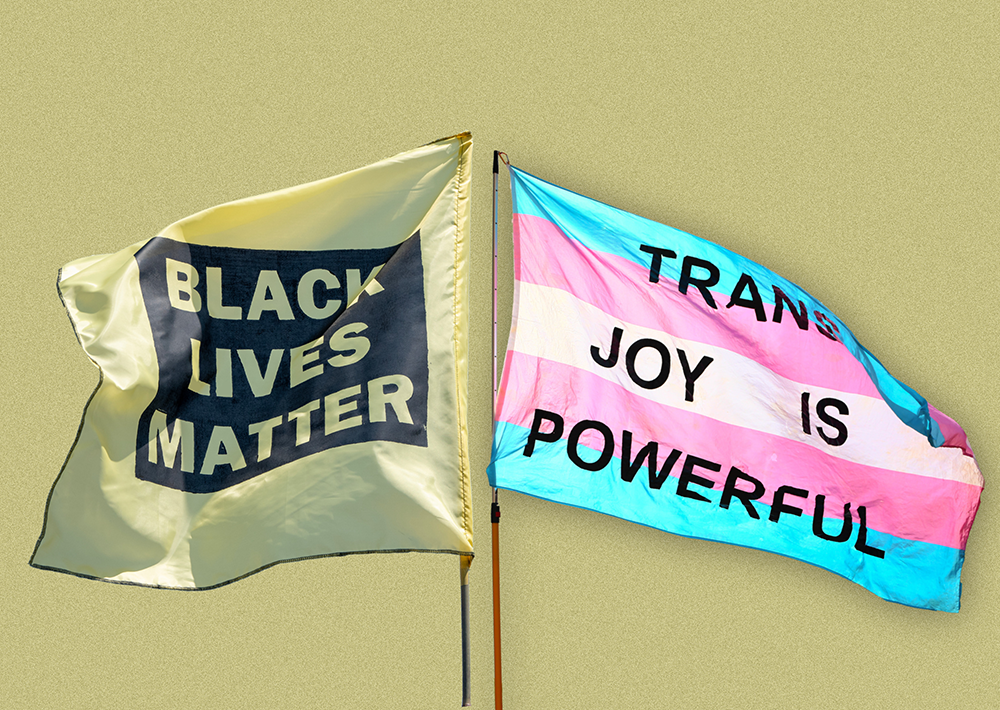Waking early on Thursday in London, I read the news on a half-lit phone screen: two people, Israeli embassy staff, gunned down outside the Capital Jewish Museum in Washington D.C. A man shouted “Free Palestine,” – of course he did – after he had fired his weapon and walked inside the building – where, in an extraordinary confusion of roles, guests offered him water and comfort, believing he too had been a victim. In a way, maybe he had.
A man shouted “Free Palestine,” – of course he did – after he had fired his weapon
Though our airwaves and streets have been filled with talk of genocide, that word is rarely explored or explained with honesty. In fact, one distinguishing feature of genocide is that it is not only the work of tyrants and soldiers; it is made possible when ordinary people come to see extraordinary cruelty as permissible, even necessary.
Historians and genocide scholars have long noted that the most chilling acts are often carried out not by sadists or ideologues, but by neighbours, shopkeepers, schoolteachers – people who, under different circumstances, might have lived blameless lives. What changes is not their nature, but their perception: a slow erosion of empathy, a steady drip of propaganda, a creeping sense that certain lives are worth less.
In Rwanda, it was farmers with machetes. In Nazi-occupied Europe, it was train conductors, clerks, and landlords. When hatred becomes ambient – socially accepted, reinforced by silence – those who once passed you in the street become capable of terrible things. That is the true terror of genocide: not just the horror of its crimes, but the ordinariness of its perpetrators.
So when I woke to the news of the murdered couple outside the Jewish museum, the first feelings were familiar: grief, anger, sorrow. But soon came another, deeper sensation – one I’ve come to know from years reporting on antisemitism, jihadist terror, and the growing unease in Jewish communities. It was the sense of something falling into place. For fifteen years, I’ve watched the signs accumulate like scattered pieces of a puzzle. This morning, they were no longer scattered. The image is taking shape so the more perceptive can already see. What once simmered at the edges is now loud and visible. What was dismissed as fringe now speaks from podiums and marches through capitals. This was more than a double murder, it was a marker.
The two people killed in Washington could have been me, my friends, my neighbours. Their lives ended on a street in the capital of the free world, while the man who killed them, red keffiyeh in hand, proudly shouted the slogan now barked constantly with increasing fervour on our very own streets, as crowds pass synagogues, Jewish families, and Holocaust memorials swathed in blue tarpaulin for protection: “free free Palestine”. We all know what it really means.
Demonstrators held signs, they chanted for peace. But each week the tone shifted. The slogans sharpened. The rage deepened. It no longer felt like empathy. It began to feel like something far older. Something familiar. This is how the temperature rises. Slowly. Almost imperceptibly. Jews have long been the proverbial frog in the pot, but now we’re not alone; the crowd, too, has changed, often without even realising it.
What began as a well-intentioned gesture of ‘solidarity’ has hardened into something darker. They say more, shout more, allow themselves to believe more. And in that incremental journey, something vital has been lost. The line between cause and hatred is dissolving.
In some strange way, they too are victims, of a wave of hatred sweeping over them, spurring them on to violent thoughts, violent actions, and at times even murder. One hesitates to invoke the spectre of the 1930s. Too heavy, too fraught. And yet, that decade too began in cafés and markets, in newspaper cartoons and casual conversations. The gas chambers came much later. The soil was first prepared with something far less shocking: silence, complicity, the nodding along. The sense that something had shifted, but not enough to interrupt dinner plans. If we are waiting for the next hatred to look like the last, we will miss it entirely. It will not wear a uniform. It will not carry a swastika. It will speak the language of rights, of resistance, of liberation. But its target will be the same.
I’ve spoken recently to Jewish parents who felt unable to let their children fully participate in school Culture Day – an annual event meant to celebrate students’ heritage by inviting them to wear traditional clothing or symbols from their cultural background. What should be a joyful moment of pride has, for many Jewish families, become a source of dread. Parents feared that if their children wore anything identifiably Jewish – a Star of David, Hebrew writing, an Israeli flag – they might be mocked, singled out, or even targeted, not just by peers but by staff unwilling to intervene.
I know at least two families who have had to remove their children from school altogether after repeated antisemitic incidents were reported and ignored by school leadership. These are not isolated experiences. They form part of a broader atmosphere, across classrooms, newsrooms, even hospitals, where Jews are learning to retreat into silence.
One patient woke in hospital to find Palestine stickers behind his bed, unsure whether he was being marked as a Jew in code, for other medical staff to see. Jewish journalists tell me they stay quiet about their fears even over drinks with colleagues, careful not to disturb the mood. These are not paranoid fantasies. They are survival tactics.
The virus is spread through the media, and into ordinary society. Consider this week’s now-infamous claim that 14,000 babies in Gaza were at imminent risk of death by starvation within two days – a figure so implausible, so grotesquely inflated, that it should have collapsed under the weight of its own absurdity. And yet it didn’t. Major news outlets repeated it. Activists shouted it and shared it as gospel, as if numbers so apocalyptic required no scrutiny at all.
The truth eventually emerged. Of course there was no prospect of 14,000 babies at imminent risk of starvation. But by then the damage was done. People believed it because they were primed to: by centuries of narratives portraying Jews not only as powerful, but as cruel; by a climate in which claims of Jewish brutality feel emotionally plausible, even when logically ludicrous. This is what it means for a society to shift – not that everyone becomes a monster, but that more and more people become willing to unleash their most monstrous thoughts of Jews.
Consider this week’s now-infamous claim that 14,000 babies in Gaza were at imminent risk of death
The societal shift can seem harmless at first – almost gentle. Not everyone parades with drums and jihad flags. It arrives in small gestures, dressed up as whimsy or harmless flair, but still manages to unsettle. An image of a cartoon rat on a social media post, or the increasingly ubiquitous crocheted watermelon badge. Soft-edged, colourful, and seemingly sweet, it carries a meaning far more deliberate. Its colours mirror the PLO flag, and its purpose is well understood by those who wear it: a stand-in for a political message that offers cover through ambiguity. Many Jews see it and feel something difficult to articulate – an unease, a tightening in the chest, the quiet knowledge that they are being alienated in spaces that once felt safe.
For me, that sense sharpened last Sunday at my local farmers’ market, a ritual of urban ease where neighbours trade small talk over crates of imperfect vegetables. Among the stalls, several traders wore the watermelon badge. My partner asked the duty manager, calmly and in private, whether there was any policy on displaying political symbols. We didn’t confront anyone or raise our voices. But a woman at a nearby stall, who had overheard, inserted herself into the exchange. Unprovoked, announced that she too wore the badge, and asked if I “wanted to see it.” When I declined, she came back louder, more aggressive, shouting abuse and telling me to “fuck off.” We began recording – for protection, not confrontation. That alone prompted a woman in a hijab to accuse us of being threatening, simply for holding up a phone. As I left, a man followed me out of the market, yelling that I needed to go. He hadn’t seen any of it, but he knew which side he was on. The mob was forming.
This is how it unfolds now – not with marching boots or formal decrees, but with symbols, smiles, and strangers stepping forward to join in. A quiet question is met with public abuse. The person targeted becomes the problem. And those looking on fall in line. In these moments you realise how easily people are enveloped by the madness. How thin the line is between neighbour and mob. And how willing some are to believe the worst of us, so long as someone else starts the lie. So, was the gunman in Washington just another victim of this social shift?
The answer is no. There can be no passive actors in this story. No one can be excused by the mood of the times. We know better than that. We each choose. We think. We act. It is precisely in times like these that we are called to do so clearly, to choose not to be part of the machinery that isolates, alienates, dehumanises, and kills.
But there is another path. A quieter one, often forgotten. My father, as a boy in Fascist Italy, was hidden for nine months in a Catholic orphanage. Saved not by grand declarations or public protests, but by nuns, bakers, pharmacists and priests: ordinary people who risked everything because they would not be part of the machinery of hate. I owe my life to them.
There are always such people. The question, now, is which kind of person the rest of us will choose to be. The jeering crowd is loud. The righteous are quiet. But they matter more.
And so I ask, not in anger but in clarity: Can you feel the shift? Do you see the signs? And if you do, will you stand with us – or wait, as others have, for the sirens too late to stop what has already begun?








Comments